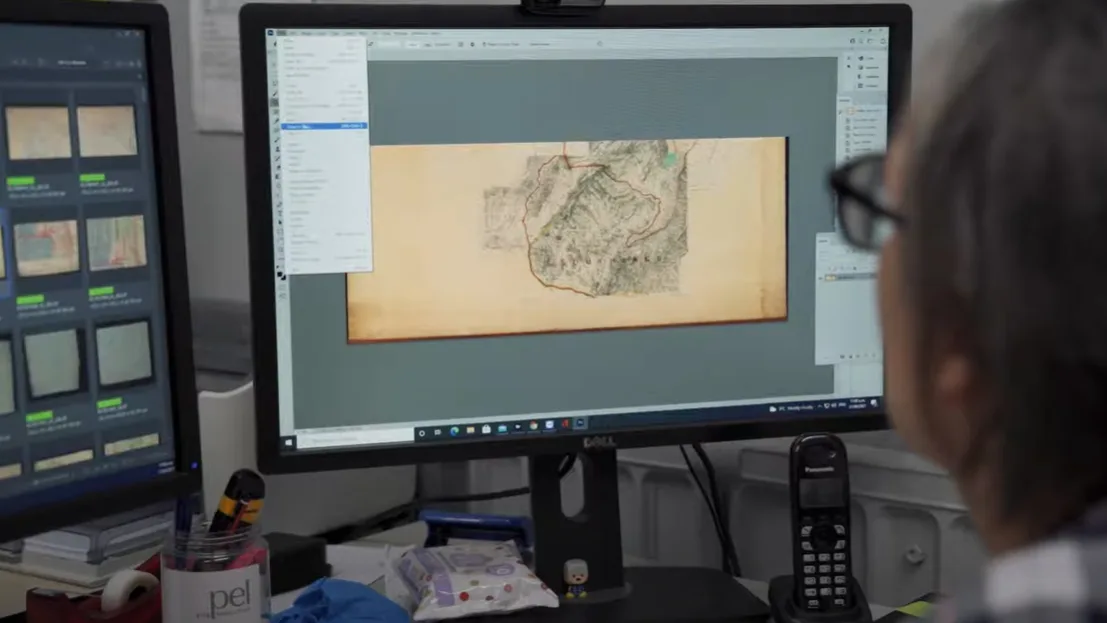From atoms to pixels – digitising very large format archives
Learn why we digitised the biggest items in our holdings – and watch our video to discover how we did it.
We hold over 7 million archives, and they come in lots of different sizes and formats. Some are 'Very Large Format', which means they’re bigger than A0.
Most of these items are large maps and plans, some beautifully and skilfully hand painted. They date from the 1840s through to more modern times. Some have large ornate wooden battens. Others are basic government-issue templates, like topographic maps of Aotearoa, that have been used and annotated by government agencies doing their mahi.
Te Maeatanga, our digitisation team, spent 6 months making a survey of the Very Large items held at Te Whanganui-a-Tara. They found more than 2,000 items larger than A0. They identified the ones that need preservation work to fight damage or deterioration, and digitised more than 300.
Why we digitised
When we digitised an archive, we photographed or scanned it and made the images available via our Collections search tool. This means people can look at it on a phone or computer, without needing to come to a reading room. Physical archives can get damaged or deteriorate over time – digitisation is a way of making sure people can access the taonga we hold in the future.
Learn more about our mahi bringing archives to the people
An extra benefit to digitising large items like maps and plans is the quality of our images. Someone looking at a digitised map can zoom in and out, or rotate the image on their screen – so they can study the item in more detail than if they were viewing it physically.
And digitised archives can be used and shared in innovative ways that physical ones can’t, using new and evolving technologies. These include data discovery and modelling technologies and methodologies like Te Tātari Raraunga, which uses analytics to identify and connect successors to whenua.
How we digitised
Digitising the wide variety and quantity of archives we hold was often complex. The biggest item we found was 5 metres long and 2 metres wide. To capture this and other really big items, we needed to get in the big guns, outsourcing the job to a contractor with a Cruse Scanner (the same scanner that was used to image Te Tiriti o Waitangi).
Digitising our Very Large Format archives
The video shows how we digitised our biggest items, from start to finish.
Find out more about preservation
Preservation is a big part of our mahi at Archives New Zealand – as well as documents, we preserve photographs, films and artworks.
Visit our online exhibition to see how we're preserving the National Film Unit collection
